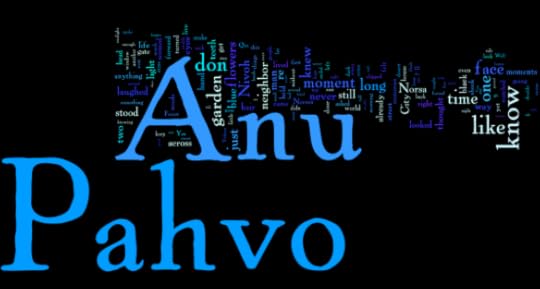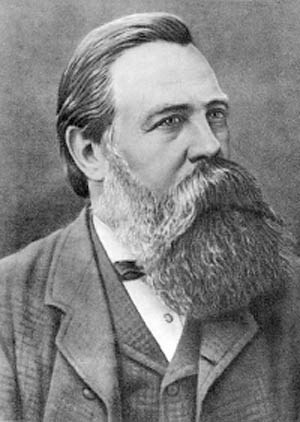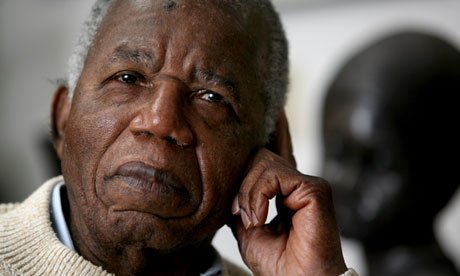B.R. Sanders's Blog, page 45
April 1, 2013
NEW SHORT STORY FOR BETA READERS!!: Blue Flowers
 Hey y’all! I just finished another short story. The description and info are below; I welcome any and everyone to read it!
Hey y’all! I just finished another short story. The description and info are below; I welcome any and everyone to read it!
Pahvo loved Anu before they ever met. Pahvo is a scryer; he sees the future, the past, lives both in a fractured present. When Pahvo first notices Anu across the street, he sees their entire lives together. Anu sees a stranger.
BLUE FLOWERS is a completed short story 4,950 words in length set in the world of Aerdh. BLUE FLOWERS explores the nature of irrevocable and inescapable love.
Interested? Let me know!
[contact-form]


March 28, 2013
Rewriting THE LONG ROAD – Week 4

this post is basically a scrivener infomercial
This is the fourth in a series of posts about the redrafting process of THE LONG ROAD which will be composed and published as I rewrite the book. The other posts in this series are here.
To recap, my goal from last week was:
I’ll have a sense of how the war transpires and why it transpires that way, and I will be able to start figuring out who the cast of characters will be in the book.
What has actually happened:
I finished working out who did what why and when through the war on a truly epically obnoxious flight* last Friday. The war has a shape and a purpose and a course now, which is really really exciting!
I ended up with 37 handwritten pages of notes plus and additional 5 single spaced pages of text exported from Evernote. It is all very rough, very freeform, and ultimately mostly just helpful for the exquisite brainstorming of which it was the product. In terms of using all these ideas to shape the book itself, I needed to wring some order from all that chaos. And that’s where Scrivener comes in.
I have, like every other aspiring writer with a blog, a whole separate post planned for someday all about why Scrivener is the shit and why it is a writer’s best friend. But his post will specifically focus on how it’s helping to organize my wide-ranging and nebulous worldbarfs. Anyway, take a gander:

SPOILER ALERT: I love these digital notecards
Now, given that I write in the universe of Aerdh a lot, and given that many of those pieces overlap and many characters cross from one book to another, it made sense to me to create a Scrivener project (called the Aerdh Bible) that would capture information about the universes generally since the information used in this book will inform other rewrites and future work. And that’s exactly what I did. I created this generally project to file away the canonical information I create about the universe as I create it so I don’t have to keep track of everything in my brain alone anymore.
The screenshot above is the very first thing I did in this Aerdh Bible. My first step was to pour through my notes and come up with a list of all the major events that occur in the war, then make a seprate file for each event, which show up like color-coded cards on a corkboard. I rearranged them until I felt pretty good about their order, then used the order to start building out a very rough and dirty timeline. And from there, I embarked on this:

the multi-tasking capabilities of this program are mindboggling
For each event, I’m writing up a quick 200-300 word description of what happened, who was there, the outcome, if it’s referenced by anything (say a song), and if the event is mentioned as a piece of background or appears “on screen” in a book. AND, because Scrivener is awesome and totally panders to my fiddly side, there is a feature that lets you create internal links to other files in the project WHICH MEANS that when a given figure is mentioned I can link to that character’s sheet.
Building the skeleton for all this cross-referencing is particularly useful because the empty cards serve as a reminder of all the little i’s I have to dot and t’s I have to cross. In any case, I am essentially building a wiki for my own fantasy universe and it is a ludicrous amount of fun.
By next week, I should have all the major events of the war built out in the Aerdh Bible. I will probably have an utterly absurd file structure brewing in there. The next big step is to create a visual timeline of the war itself with the arcs of all involved groups represented, so hopefully I’ll be organized enough to start that. Stay tuned!
*Ok, so apparently my plane hit a bird on its way into Denver. A bird big enough to “leave sizable dents” on the plane, which, what the hell was it? An emu? Anyway, the wayward bird and its untimely demise delayed the flight for a full seven hours. I took the opportunity to read an entire book, do some sudoku, and finish a short story. We get on the plane, and it’s a good thing I’m no nervous flyer, because that was the choppiest flight I’ve ever been on. AND THEN FRIENDS, and then, when we landed, we were delayed yet again by a group of entitled assholes who decided to stand up and root around in the overhead compartments for their stuff while the plane was yet taxiing. Air marshals were called on board to deal with the troublemakers — a process that took substantially longer than you’d think — and I took that opportunity to finish out the worldbarfing process.


March 25, 2013
Scattered Thoughts On Engels as a Framework for Worldbuilding

Engels: a man with a compelling beard
One reason I am drawn to speculative fiction — both reading what others have written and creating it myself — is its potential for radical what ifs. By that, I mean that speculative fiction is uniquely positioned to wonder about and critique the current world in which we live. It offers an alternative to and an escape from existing paradigms. Really good worldbuilding requires a kind of mind that understands how societies are currently structured, how they may be structured elsewhere, and what those structures may evolve into.
I believe I’ve said before that I write fantasy in large part because I love worldbuilding. I like the sandbox quality of spec fic, and specifically fantasy; the possibility of creating a universe from scratch is very exciting to me. But nothing happens in a vacuum. Nothing can ever truly be objective. I see the world through a particular lens, my choices are informed by my experiences and ideas which resonate with me. We all have what I think of as foundational texts — those narratives that define elements of the world to us and can become a lens through which we makes sense of life around us.
I first read Engels’ Origin of the Family, Private Property, and the State (click through for full text) when I was 18 years old. Prior to that, I had been reading tons of Marx, tons of Trotsky and Lenin. And I’d been perturbed that Marxist theory never seemed to dig quite deep enough. All oppression is connected — so how do material conditions get elaborated into class structures? And I found this book, devoured it, and it became a primary lens through which I make sense of the world around me.
Engels’ work explores how ecological conditions (scarcity, surplus, the availability of resources) define the social relationships of a group. If there’s not enough to go around, when there’s no surplus, there’s no private property. And when there’s no private property, there’s no inheritance. But when a surplus happens and an inheritance becomes a thing, people want to make sure what they have gets passed to their kids. Now for the one doing the birthing, it’s pretty easy to keep track of who is and is not your kid. For the other parent — the one who supplied sperm and is not directly involved in the whole birth thing — there appears to them to be a reason to control the womb-haver’s body and to make sure their sexuality is kept in check lest all those scraped together resources get passed to kids who are not, in fact, the sperm-haver’s.
The thing that draws me to this line of thought most is how Engels deconstructs biological essentialism. No, women are not just naturally nurturing so they should stay at home with babies. Maybe we say that, but that’s not what’s going on. Engels would say instead perhaps we’re sequestering them so there’s little opportunity for men to be cuckolded. Maybe that’s what’s going on.
When I’m embarking on building a new world, I work actively to a) avoid essentialism and b) build a culture (literally) from the ground up.
Avoiding Essentialism
Essentialism — or the belief that differences between groups of people are fixed and unchanging — is a way to reify the boundaries of one group against another. Gender differences are often explained through biological essentialism (men and women do different things in society because they are just built different). Given that essentialism is so incredibly pervasive in our cultural understanding of the world, it’s not at all shocking that I see a lot of essentialism leak into speculative fiction.
The thing about essentialism, both in terms of fiction and real world thought, is that it is lazy. The human mind and the human experience are incredibly multi-faceted. We are enormously complex beings who live in nearly unimaginable complexity with each other. Nothing about us just is because it is. In worldbuilding especially, essentialism is a mark of an uncommitted writer. It signals to me that an author just checked out of that part of their world. “It just is, ok? Don’t look too close” is what they seem to say.
In my own worldbuilding, I am very much drawn to the margins. I like to write about those on the outskirts of respectability, of society, those who don’t quite fit. But in order to do that well I have to make the story about that individual’s positionality against a larger cultural framework. It’s not that this person is just an inherently amazing person, it’s that this person is forced to navigate choppy cultural waters with a sometimes incompetent boat. The drama is in the tension between that person and the context (or their boat and the ever-changing ocean). And contexts are dynamic. They are anything but stable. Why do they change? How do they change? Who changes them, and do they change back? These are the kinds of questions that often have unsatisfying answers if you are relying on essentialism to explicate your characters’ thoughts and feelings.
From the Ground Up
The other major thing I pay attention to is the ecological material conditions in which a culture exists. Cultures are fascinating because they are, in essence, both a tool to shape the environment around you in a collective way and a collective reaction to the environment. Whenever I am building something out and I’m not sure why/how it came to be, I take it back down to the material context. What is the food like? Is it scarce? How dense is the population? What are the resources available — stone, wood, minerals? Sorting that stuff out often gives me an insight into why a population may have moved from one part of the world to another, or what kind of relationship they have with the natural world down the line.
In the case of one of my cultural groups, it has been useful to understand how their culture and their understanding of their culture has changed due to a vicious and devastating war. With a literal fraction of their people remaining, having been disenfranchised and quite technically blown back to the stone age, how do they deal with, say, abortion? Is it possible that it could have been not a big thing before and is a Huge Deal now? The conditions are different, and cultures either evolve or they die.
Engels and Magic
I would advocate this materially grounded approach to understanding cultural development to basically any writer. Want to write characters from a different positionality than your own? Engels might be able to help. Want to explore a cultural context you did not grow up in? Do a lot of research and think about what questions Engels might ask you to push you deeper.
But I think his approach is especially fruitful in spec fic. In Aerdh, I have essentially a secondary earth but one in a universe where there is an additional natural force of magic. The fabric of reality is, essentially, just a little bit more malleable in certain places, which can be capitalized on by those with certain capabilities. Plugging Engels into this idea forced me to think through things like following:
what would make one culture approve of magic and another disapprove? how much of that approval/disapproval is related to the movement or access to resources?
how can magic be commodified (or not) as a resource?
how does the expression of magical abilities interact with other biological processes to create vulnerabilities for a population? (for example, if magic increases longevity, there may be a concordant reduction in fertility rates to keep populations from exploding. and if that happens, the comparatively smaller number of magical beings might be at risk for colonization by mundane beings).
Do you draw on a particular discourse or framework when you are elbow-deep in crafting a world? What thinkers do you return to again and again for insight? I’d love to here from you in the comments!


Novelist Chinua Achebe dies, aged 82
 Reblogged from eReading just got social:
Reblogged from eReading just got social:
A great light has gone out.
Chinua Achebe, the Nigerian novelist seen by millions as the father of African literature, has died at the age of 82.
African papers were reporting his death following an illness and hospital stay in Boston this morning, and both his agent and his publisher later confirmed the news to the Guardian.
Simon Winder, publishing director at Penguin, called him an "utterly remarkable man".




